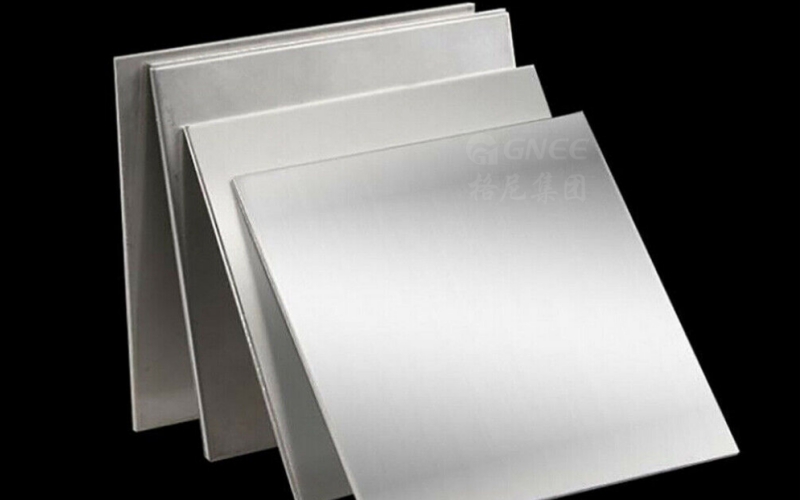What Is Stainless Steel Plate Size?
Stainless steel plate size is a flat and rectangular piece of metal with accurate dimension requirements. It usually contains three elements: thickness, width, and length.
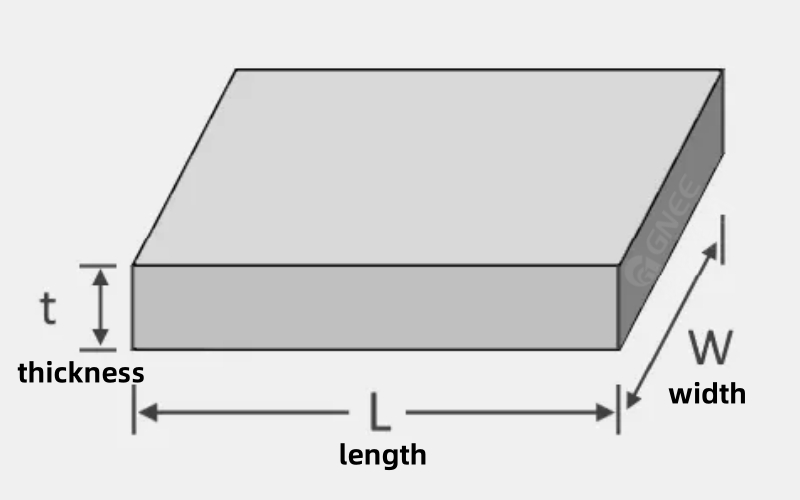
Common Standard Sizes for Stainless Steel Plate
Stainless steel sheets and plates come in a wide range of thicknesses, widths, and lengths, allowing for vast flexibility in design and functionality. Let us continue to explore these three elements closely.
Stainless Steel Plate Thickness
Thickness (T for short) means how thick is the stainless steel plate.
The thickness of a stainless steel plate plays a crucial role in determining its strength, durability, and suitability for different applications. If the thickness is not enough, it will bend easily, which will inevitably affect the use. If the thickness is too large, it will cause the plate too heavy, which not only increases the cost but also cause unnecessary difficulties in operation.
Frankly, stainless steel plates are available in various thickness options, catering to meet specific requirements and applications. Here is a table sheet for your reference.
| Thickness | Type |
| 0.2mm – 4mm | Stainless steel thin sheet |
| 4mm – 20mm | Stainless steel medium-thickness plate |
| 20mm – 60mm | Stainless steel heavy-thickness plate |
| 60mm – 115mm | Stainless steel extra-thickness plate |
Thin stainless steel sheets, ranging from 0.2mm to 4mm in thickness, allow for flexibility and easy fabrication while still maintaining the inherent strength of stainless steel. They are commonly used in intricate fabrication work or lightweight applications like manufacturing, precision instruments, and automotive components.
Medium gauge stainless plates, ranging from 3mm to 20mm, strike a balance between strength and versatility. It finds extensive use in industries such as construction or automotive manufacturing where strength and durability are essential.
Thick stainless metal plates with a thickness of 25mm and above unparalleled sturdiness and structural integrity. Industries like shipbuilding, oil & gas exploration platforms, and heavy machinery rely on these robust plates to endure extreme conditions without compromising performance.
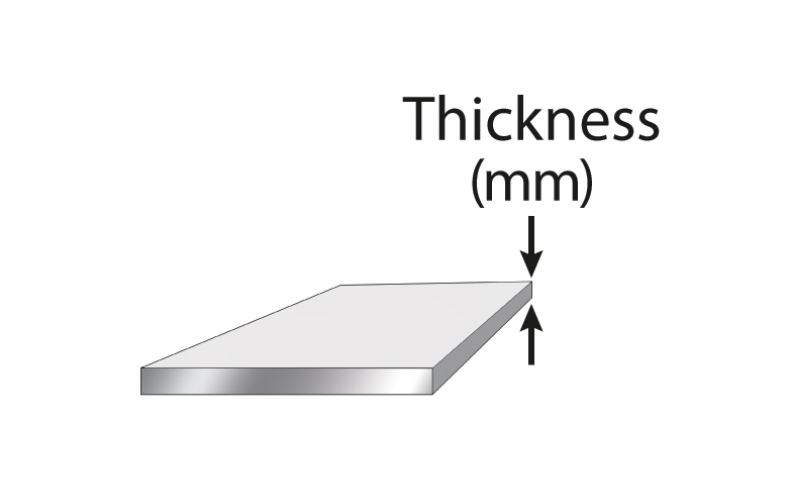
Stainless Steel Plate: Standard Thickness Vs. Solid Thickness
Generally speaking, The solid thickness is generally smaller than the standard thickness.
The standard thickness of stainless plate refers to the marked thickness value like 1mm, 2mm, 3mm, etc.
The solid thickness of the stainless plate refers to the actual measured thickness ( this thickness value is generally accurate to two digits after the decimal point, such as 0.85mm, 1.91mm, 2.75mm, 3.80mm, etc.).
The difference between the standard thickness and the actual thickness of the stainless steel plate depends on the standard to which the stainless steel plate material is manufactured. Generally, there is an international comparison table of stainless steel plate standard thickness and solid thickness for reference.
|
Comparison Table of Standard Thickness and Solid Thickness of Stainless Steel Plate (mm) |
||||
| Standard Thickness | Solid Thickness (When the width of the SS plate is 1.2m) | |||
| Normal condition | Comply with pressure standard GB/T24511-2017 | Comply with hot rolling national standard
GB/T4237-2015 |
Comply with cold rolling national standard
GB/T3280-2015 |
|
| 0.5 | 0.3 – 0.5 | – | – | 0.45 – 0.55 |
| 0.8 | 0.6 – 0.8 | – | – | 0.71 – 0.89 |
| 1 | 0.8 – 1 | – | – | 0.9 – 1.1 |
| 1.2 | 1 – 1.2 | – | – | 0.9 – 1.1 |
| 1.5 | 1.2 – 1.5 | – | – | 1.38 – 1.62 |
| 2 | 1.6 – 2 | – | 1.78 – 2.22 | 1.83 – 2.17 |
| 2.5 | 2.2 – 2.5 | – | 1.78 – 2.22 | 2.28 – 2.72 |
| 3 | 2.6 – 3 | 2.75 – 3.25 | 2.75 – 3.25 | 2.78 – 3.22 |
| 4 | 3.5 – 4 | 3.72 – 4.28 | 3.72 – 4.28 | 3.75 – 425 |
| 5 | 4.5 – 5 | 4.7 – 5.31 | 4.69 – 5.31 | 4.65 – 5.35 |
*Suggestion
When purchasing stainless steel plates, Gnee Stainless Steel reminds you to pay attention to the difference between solid thickness and standard thickness.
If the total price of stainless steel plate materials is calculated based on the actual weight, the price per unit weight is mainly affected by market conditions and material quality.
If the total price of stainless steel plate materials is calculated based on the theoretical weight (the weight calculated based on the standard thickness, see: Stainless Steel Plate Weight Calculation Formula), the price per unit weight is affected by the difference between the standard thickness and the actual thickness, market conditions, and material quality.
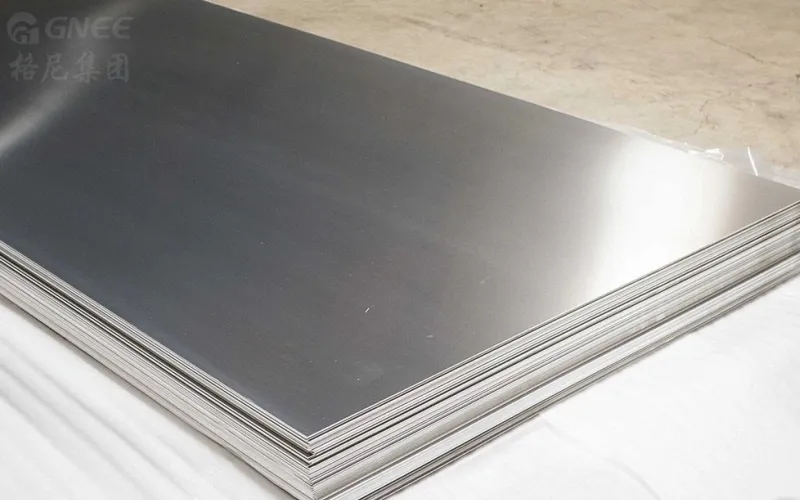
Stainless Steel Plate Width
Width (W for short) means how wide is the stainless steel plate.
Width variation generally ranges below 2000 mm, contributing to the versatility of stainless steel plates.
Stainless steel plates with smaller widths (up to 1000mm) are suitable for manufacturing small spare parts, kitchen utensils, and applications where space constraints exist or when narrower dimensions align with design specifications, etc.
Stainless steel plates with larger widths (1000mm – 1500mm) are suitable for manufacturing containers, storage tanks, etc.
Stainless steel plates with a width exceeding 1500mm find utility in large-scale projects like bridges, oil platforms, industrial flooring, cladding for buildings, or large machinery production.
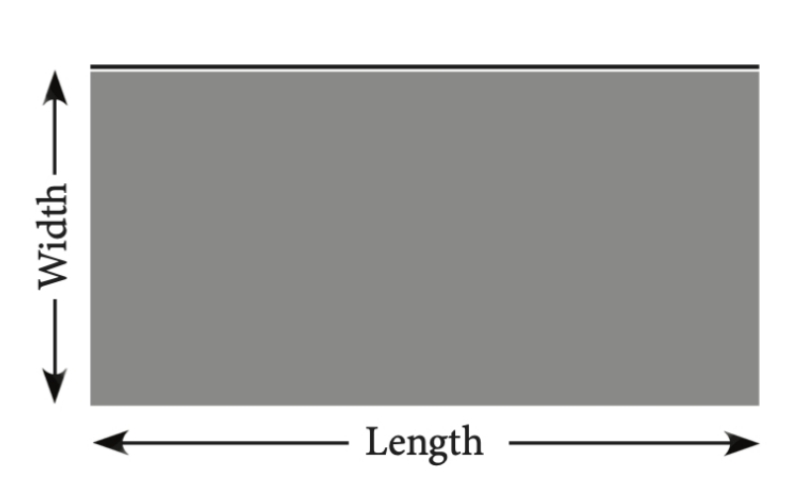
Stainless Steel Plate Length
Length (L for short) means how long is a stainless steel plate.
Length variation is generally between 2000mm and 6000mm. The length considerations for stainless steel plates depend on the specific requirements of each application.
Stainless plates with short lengths (up to 3000mm) offer convenience in projects that necessitate smaller dimensions or when space constraints are a factor. Industries such as interior design or small-scale fabrication may utilize short-length stainless steel plates due to their ease of transportation, handling, and installation.
Stainless plates with standard lengths ranging from 3000mm to 6000mm suit a wide range of applications without requiring additional joining or cutting processes. From architectural designs involving structural components to manufacturing machinery parts, standard-length stainless steel plates offer convenience without compromising performance.
For specialized purposes requiring extended surfaces or when specific applications demand elongated dimensions, long-length stainless steel plates exceeding 6000mm and above come into play. Industries such as shipbuilding, construction beams, infrastructure development, or custom-made equipment often rely on these elongated sizes to meet their unique specifications.
Stainless Steel Plate Size Customization
In addition to the common sizes sold on the steel market, stainless steel plates can also be customized according to customer’s needs. For example, the thickness, width, and length of a stainless steel plate can be customized according to specific engineering requirements to meet the quality and use effect. These customized sizes ensure a perfect fit, minimize material wastage, and enhance the overall functionality. By providing flexibility in shape and dimension, stainless steel plates offer an unparalleled advantage in diverse industries.
Whether in regular or custom sizes, stainless steel plate is an excellent material that will continue to play an important role in various sectors.
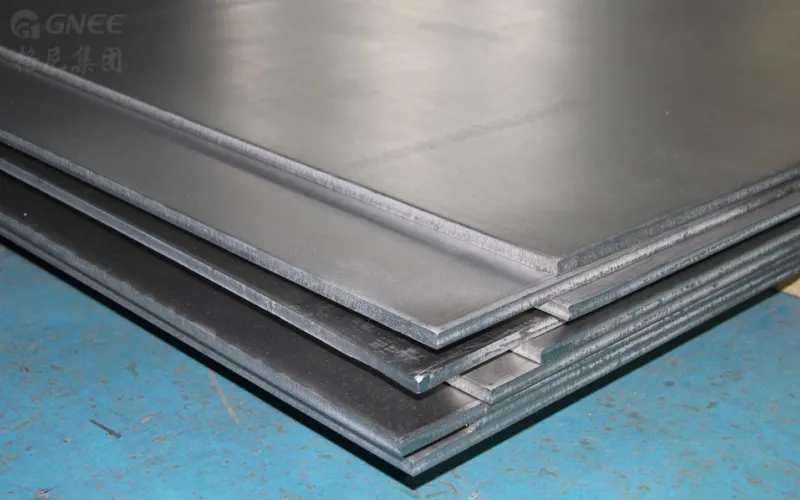
Stainless Steel Plate Size: Unit Conversion
In the international market, stainless steel plate dimensions or sizes are usually expressed in feet and millimeters. The single quote “ ‘ ” refers to feet, which is an imperial unit of measurement. The millimeter can be abbreviated as “mm”. The conversion standard is:
1 foot = 12 inches = 304.8 mm
For example: 4 feet = 1219 mm, 8 feet = 2438 mm, 10 feet = 3048 mm.
If marked 1.5×4’×8′, means that the thickness, width, and length of the stainless steel plate are 1.5mm, 1219mm, and 2438mm respectively.
Choosing the Suitable Stainless Steel Plate Sizes from Gnee
Understanding the common sizes for stainless steel plates is crucial for selecting the most suitable option based on thickness requirements and width and length considerations. By choosing the right stainless steel plate size, industries can offer practicality without compromising style, truly exemplifying the symbiotic relationship between form and function. Contact us today for a free quote to learn how to choose suitable stainless steel plate sizes for your projects.


